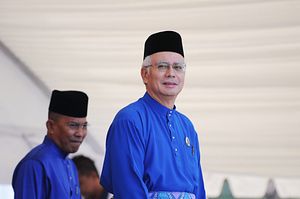The jailing of Malaysian opposition leader Anwar Ibrahim in February, though called “politically motivated proceedings under an abusive and archaic law” by Human Rights Watch, appeared to some Malaysian politicians and observers like a challenge to the country’s political opposition. With no one leader ready to completely replace Anwar, the opposition alliance, which has deep internal divisions over social and economic policy, seemed poised to fracture before the next election. In addition, supporters of the ruling coalition hoped Anwar’s jailing would help usher in a period of political stability. Malaysia has been buffeted since the May 2013 national elections, by increasing partisanship, in-fighting within the ruling coalition’s dominant United Malays National Organization (UMNO) party, a series of arrests of opposition activists, and revelations of potential scandals in the country’s 1MDB state fund, which allegedly has lost staggering amounts of money. In addition, of course, state carrier Malaysia Airlines suffered two immense tragedies after one of its planes vanished shortly after leaving Malaysia and another plane was apparently shot down over Ukraine.
The stability has not arrived, and the opposition does not (yet) seem to be disintegrating. Last week, about ten thousand Malaysians rallied in the streets of Kuala Lumpur to protest the verdict against Anwar and, more generally, to register their dissatisfaction with the government. The five year sentence may actually have made Anwar into a martyr, and helped opposition politicians put aside their divisions for now.
What’s more, rather than ushering in a period of stability for the ruling coalition, the post-Anwar era has only brought continued turmoil in Malaysia. As more and more information has leaked out about the 1MDB fund and it alleged problems, the state fund’s management has been challenged even more by opposition politicians, investors, journalists, and some in the ruling coalition. Malaysia’s Auditor General’s office has begun a probe into the 1MDB fund. Bloomberg recently reported that the fund, which has received a cash infusion from one of Malaysia’s wealthiest tycoons, still may have trouble servicing its debts. Meanwhile, Prime Minister Najib Razak appears to be battling to maintain his job against supporters in UMNO who are still loyal to former Prime Minister Mahathir Mohamad, a man whom, though retired, retains enormous influence within the ruling coalition. Mahathir has turned harshly critical of Najib. At a recent party meeting designed to show support for Najib, a group of influential party leaders—including Mahathir’s son, chief minister of the state of Kedah—simply did not show up.
Now, this week, the Malaysian government has taken its tough tactics toward the opposition one step farther. On Monday, authorities arrested Anwar’s daughter, Nurul Izzah Anwar, on charges of sedition. Nurul Izzah Anwar, an MP in her own right and a potential future leader of the opposition alliance, was hit with the charges after she gave a speech in Malaysia’s parliament criticizing her father’s case and questioning the independence of the Malaysian judiciary, according to a report in Time. (According to Malaysian law, politicians are supposed to have immunity from prosecution over anything they say in parliament, but this law seems to have been ignored in Nurul’s case.) Since the disputed May 2013 national elections, the government of Malaysia has increasingly used sedition laws to arrest opposition politicians and civil society activists. Although Nurul has been freed on bail, it remains unclear whether the charges against her will be pressed, leading to a trial.
At a press conference after being released, Nurul claimed that her arrest “is a clear sign that the government is desperate” and thus is targeting a broader range of opposition politicians beyond Anwar. She may be right that the government is desperate—although the desperation may not necessarily stem from the opposition’s activities but rather from fracturing within UMNO. Najib has been mostly silent about the Nurul arrest. Perhaps, given the attacks on him from within UMNO, the prime minister is focusing his energy simply on fighting off challenges from his own side.
Joshua Kurlantzick is a fellow for Southeast Asia at the Council on Foreign Relations. This post appears courtesy of CFR.org.

































